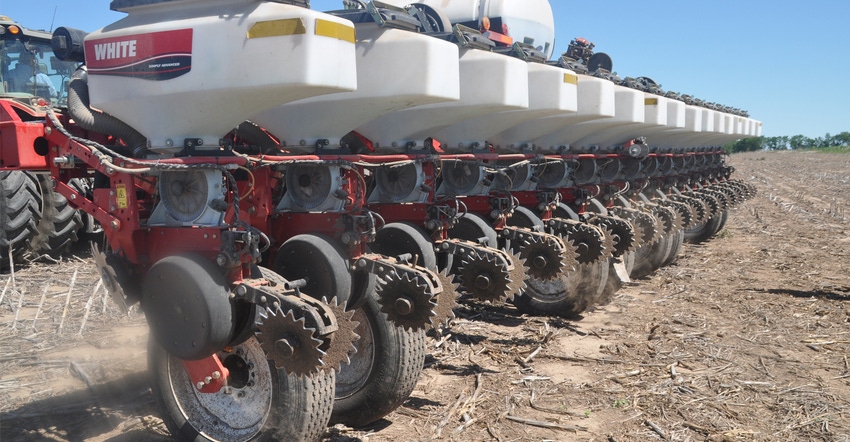
As March winds down with a late-winter blizzard in the northwest and thunderstorms across the southern half of the state, it’s getting close to time to get into the fields for spring planting.
For farmers, “social distancing” isn’t much of an issue. For the kids who are missing the end of their senior year, prom, graduation and spring sports season, though, it is causing plenty of heartache. On top of that, the changes in lifestyle that come with fighting a pandemic are creating concerns about everything from slow internet to supplies of fertilizer and herbicides for the coming season.
“We’re running with minimal staff and are following safety protocols,” says Dave Spears, Mid-Kansas Cooperative Association in Moundridge. “Overall, I think MKC is in good shape both for seed and for other inputs. We have supplies in our warehouses and are ready to start moving out to farmers as soon as they are ready for them.”
Spears says he is hearing some farmers and ag retailers express concerns about disruptions in transportation as the demand for trucks to give priority to medical supplies ramps up. The Ag Retailers Association and The Fertilizer Institute both sent letters to President Donald Trump urging him to designate agricultural supplies as “essential” in the transportation mix. That designation was made on March 19.
Spears says the co-op will the working with farmers to coordinate delivery of materials to protect both the safety of the farmer and of the coop employee making the delivery.
“We are member-owned, farmer-owned, and we realize that our members are feeling very vulnerable as this crisis gets worse,” he says. “They want something they can control. They can’t control much about this disease, but they can control getting their equipment ready and the seed in the ground. They are understandably anxious to be able to get out there in the field and do that.”
Jarod Baker, with the Scott Cooperative Association in Scott City, says he has plenty of supplies on hand for the early planting season.
“We’re urging our members to have a 30-to-60-day supply of materials on hand,” Baker says. “We are watching carefully to see if bottlenecks develop in the shipping lanes. We’re dependent on materials moving from the points of entry at the ports. If we wind up with large numbers of dock workers or truck drivers getting sick, it could slow down unloading and transport.”
Baker says the two products that come mostly from the hard-hit region of Wuhan, China, are paraquat and glyphosate, but that adequate supplies are already in the warehouse for the next 60 days.
At the Garden City Co-op location in Dighton, Mark Vance says there have been no problems so far with the supply chain and he is confident that the co-op will be able to meet the needs of its members.
“So far, the price of nitrogen is quite stable,” he says. “We have seen some price increases in dry phosphorus, and I’m not sure where that is coming from. It could be from interruptions in trucking.”
Vance says that most of the nitrogen supply for his region of the state come from the Koch Industries plant in Dodge City.
“As long as that plant is up and running, our supply is secure,” he
About the Author(s)
You May Also Like






